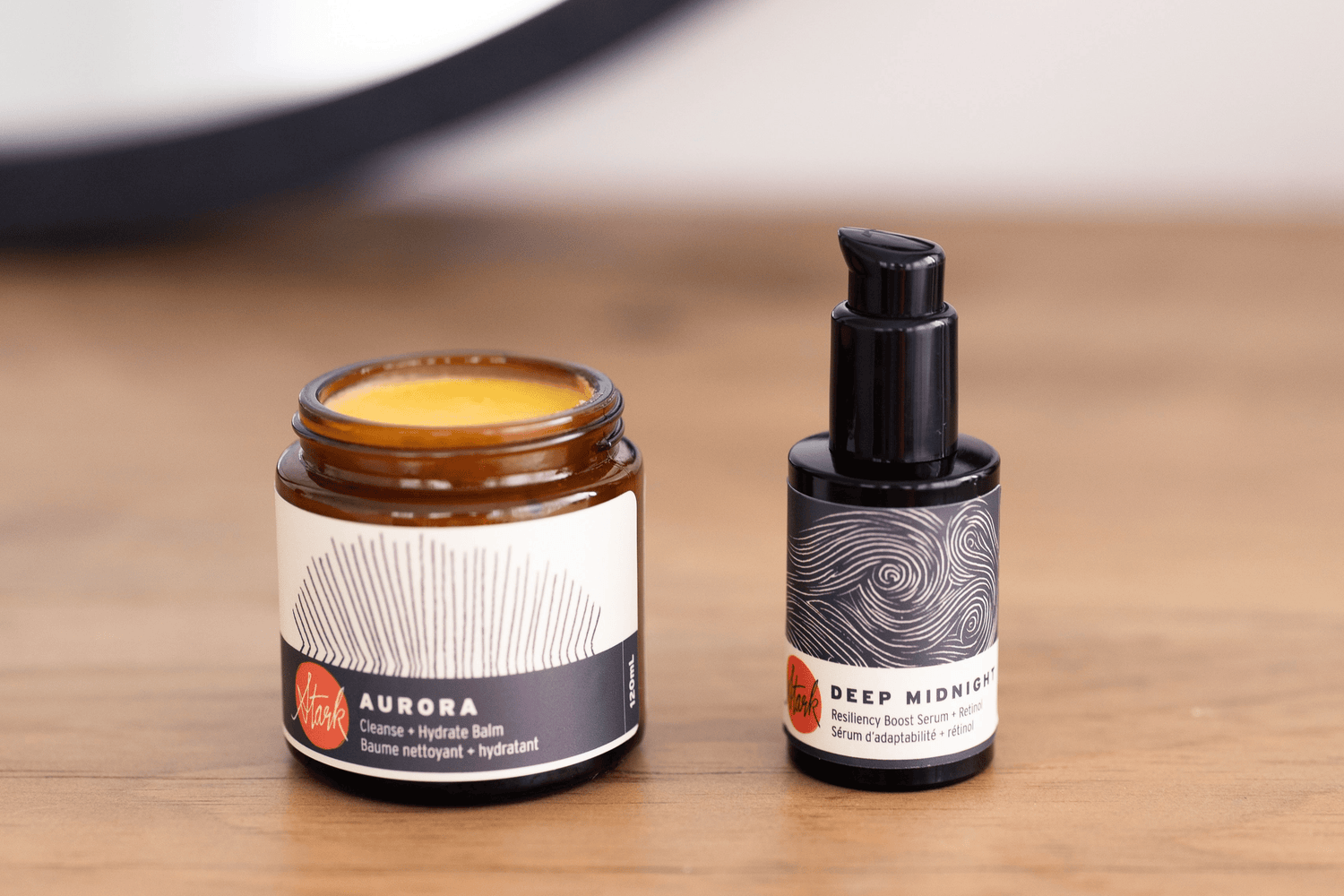Coco et décyl glucoside
Partager
Dans le monde de la beauté, les tensioactifs sont souvent perçus à tort comme étant tous identiques : agressifs et décapants. Mais c'est faux ! Tous les agents nettoyants ne se valent pas. Découvrons l'univers puissant et doux du Coco Glucoside et du Decyl Glucoside, deux tensioactifs naturels reconnus pour leurs propriétés nettoyantes exceptionnelles. Nous utilisons ces deux tensioactifs car ils nettoient à la fois la peau, le cuir chevelu et les cheveux avec douceur et efficacité, tout en respectant le microbiote cutané.
Le coco glucoside et le décyl glucoside appartiennent tous deux à la famille des alkyl glucosides, dérivés de sources renouvelables comme l'huile de coco et l'amidon de maïs[^1]. Ces tensioactifs sont reconnus pour leur douceur et leur compatibilité avec différents types de peau, ce qui en fait des choix idéaux pour les peaux sensibles ou délicates.
Le glucoside de coco, dérivé de l'huile de coco, est particulièrement apprécié pour ses excellentes propriétés moussantes et nettoyantes[^2]. Son action douce mais efficace aide à éliminer les impuretés et l'excès de sébum de la surface de la peau, la laissant propre et fraîche sans provoquer de sécheresse ni d'irritation.
D'autre part, le décyl glucoside, dérivé de l'amidon de maïs, offre des propriétés nettoyantes douces similaires[^3]. Il est reconnu pour sa douceur et sa capacité à maintenir l'équilibre hydrique naturel de la peau tout en éliminant efficacement les impuretés.
Le coco glucoside et le décyl glucoside sont biodégradables, respectueux de l'environnement et présentent une faible toxicité aquatique[^4][^5]. Ces qualités en font des alternatives plus sûres pour votre peau et l'écosystème. Ce duo dynamique allie efficacité et douceur, pour une expérience nettoyante luxueuse et apaisante, respectueuse de l'intégrité de votre peau.
Sources : [^1] Zhang, S., et al. (2020). Application de tensioactifs dans la synthèse de silice mésoporeuse et leur application. Nanomaterials, 10(8), 1606. [^2] Ukiwe, LN, et al. (2019). Potentiel du tensioactif non ionique, le glucoside de coco, comme stabilisant pour les émulsions eau-dans-huile. Journal of Dispersion Science and Technology, 40(7), 1066-1075. [^3] Zhang, J., et al. (2017). Préparation de décyl glucoside à partir de l'hydrolyse de l'amidon de maïs catalysée par la glucoamylase immobilisée. Journal of Chemical Engineering and Data, 62(2), 857-862. [^4] Commission européenne. (2010). Coco-Glucoside. Extrait de https://ec.europa.eu/growth/tools-databases/cosing/index.cfm?fuseaction=search.details_v2&id=62291 [^5] Commission européenne. (2006). Décyl glucoside. Extrait de https://ec.europa.eu/growth/tools-databases/cosing/index.cfm?fuseaction=search.details_v2&id=62295




